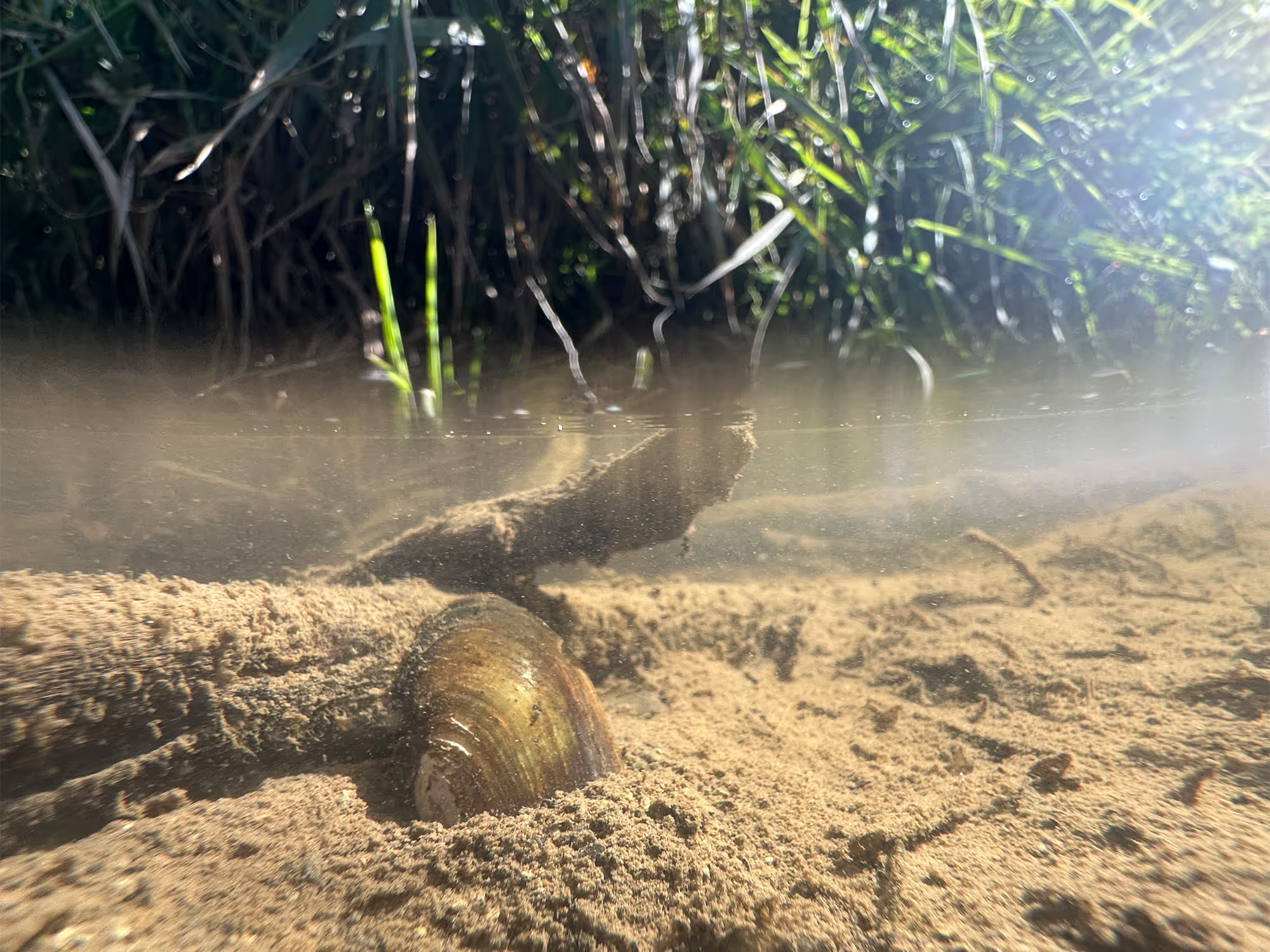
The endangered European pearl mussel (Margaritifera margaritifera) and the thick-bodied mussel (Unio crassus) are bred at the mussel breeding station near the Kalborn mill. The aim of this work is to reintroduce the mussels into the river as soon as they have reached a size where they are no longer completely buried, but can be seen in the riverbed.
This considerably increases their chances of survival. In addition to mussel cultivation, it is very important to improve the quality of the Our as a habitat through various measures. These measures benefit not only the mussels, but also all other aquatic organisms.
Mussel rearing is highly complex: firstly, mussel larvae are collected after being released by adult mussels to infect host fish.
The small mussels (less than half a millimeter in size) that develop on the host fish are caught in nets in special facilities, then reared in plastic boxes in a temperature-controlled cabinet, where they are fed single-cell algae.
Freshwater mussels remain in the breeding station for two years, pearl mussels for three to four years. Only then, when they reach a size of 1.5 to 3 cm, are they released back into their respective home waters. Since 2017, over 20,000 young mussels have already been successfully reintroduced into the wild.